The educational materials listed on this page are about Farm Business Management.
Growing and selling products profitably is critical to an agriculture business, but there are other aspects that are essential to farm business management. While it is difficult to find grants to start a farm, operating or starting a farm require a basic understanding of ag credit, including FSA loans (and other farm loans), and how to obtain farm credit for an agriculture loan. Savvy producers understand agricultural finance and agricultural accounting, and keep a close eye on farm finances. Farmers need to understand agricultural marketing and may need to know demand for a specific crop, such as with apple marketing. Starting a small farm may include finding land through FarmLink. While some new farmers may get started with a farm internship, others may useless formal farming training or more formal agriculture education. Ultimately, farmers also need to learn about farm labor, farm labor laws or farm succession planning at some point in their career. Key practices include marketing management, financial management, community-supported agriculture, risk management, agricultural finance, whole farm planning, farm succession, land access, labor/employment.
SARE’s bulletin Scaling Up Your Vegetable Farm for Wholesale Markets offers alternatives for producers to market their products through unconventional channels. Building a Sustainable Business aids producers in developing a sustainable and profitable business plan for their enterprise. Building Sustainable Farms, Ranches and Communities gives producers options for agricultural loans, grants and technical expertise. Farmers looking to transition to organic will find Organic Transition: A Business Planner for Farmers, Ranchers and Food Entrepreneurs useful for business planning.
Showing 1-5 of 5 results
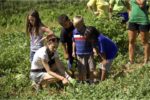
Vermont Food Education Every Day
Includes guides for farmers and food service personnel working to increase local food in schools.
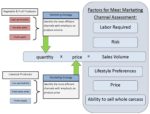
Livestock Marketing Channel Assessment Tool
This tool provides livestock producers with a way to identify the most profitable marketing channels.
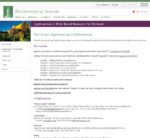
Northeast Agritourism Collaboration
This Northeast Agritourism Collaboration website, hosted by the University of Vermont, supports farmers and ranchers interested in entering the agritourism business by sharing best practices and resources available in the Northeast.
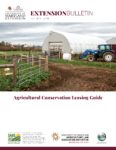
Agricultural Conservation Leasing Guide
This bulletin, authored by Sarah Everhart of the University of Maryland Francis K. Carey School of Law, provides guidance to farmers, landowners and agricultural service providers interested in lease agreements to help implement stewardship planning and conservation practices on leased land. The publication describes many popular conservation programs and considerations for how they might be […]
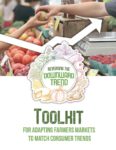
Reversing the Downward Trend
Farmers across the Northeast have reported decreases in consumer participation at farmers' markets and reduced sales. This toolkit was developed as a result of survey research that looked at consumer perceptions of shopping at farmers' markets. The publication provides information on marketing strategies and services aimed to help farmers' market managers and farmers understand what […]